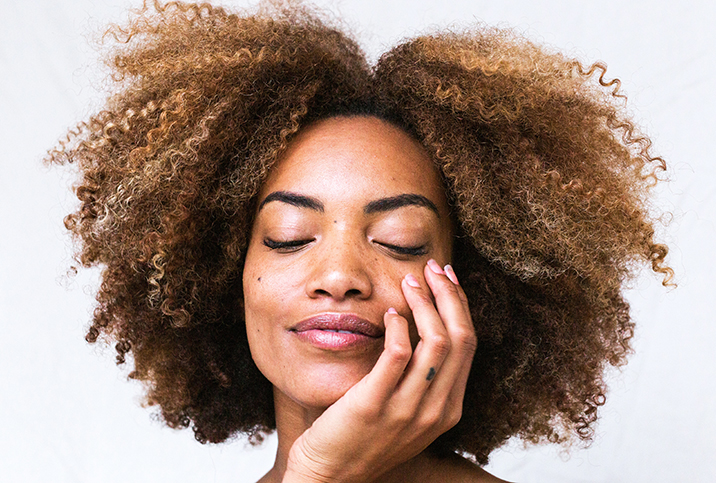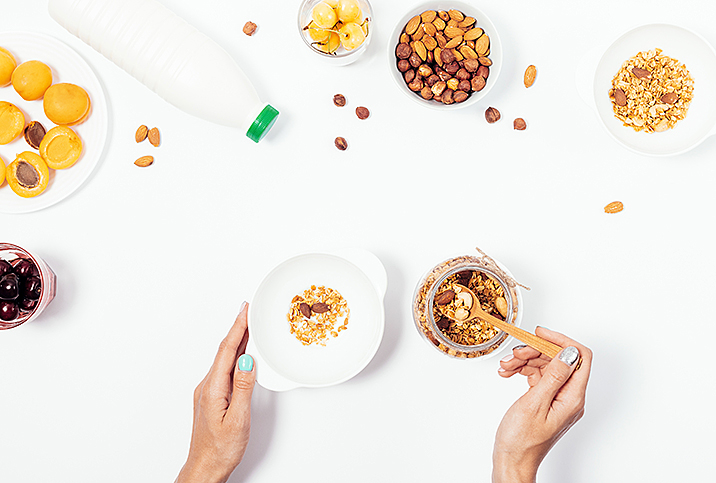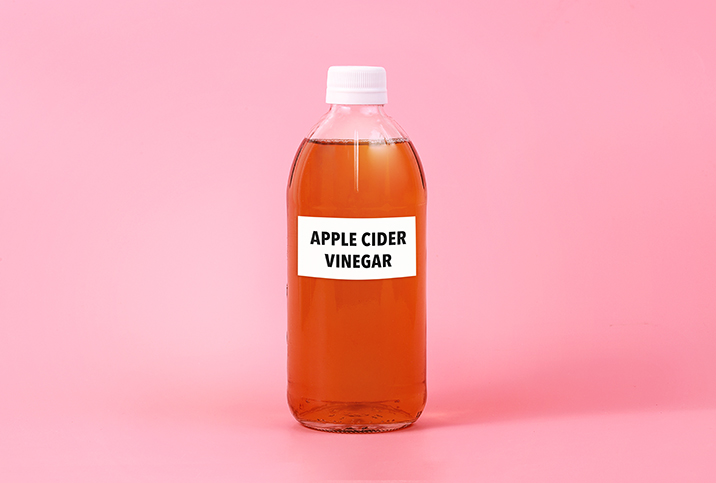Finding Natural Hair Conditioners in Your Kitchen

Brand-name hair conditioners and masks may smell nice, but they're often filled with harsh chemicals and allergenic fragrances. Instead of paying for products that potentially do more harm than good in the long run, take a look around your home for some multifunctional options.
How do hair conditioners work?
The outer layer of the hair shaft provides a coating of protection and shine for new hair growth. As hair grows out and gets damaged from brushing, heat styling, the sun and coloring, it becomes porous and absorbs humidity faster. Without its waterproof layer, hair swells when it's wet and is more prone to breakage. The cycle of hair swelling and drying exacerbates damage through a process called hygral fatigue.
Hair conditioners typically contain silicones that sit on the hair strands and mimic the strength of new, undamaged hair. Silicones waterproof the hair, reduce static electricity, seal the cuticle, protect against heat damage and prevent frizz. With an understanding of the chemical makeup of natural oils from your kitchen, you can discover which ingredients are beneficial and what's not worth trying.
Eggs & mayonnaise
Across DIY websites and home-remedy blogs, many writers have encouraged the use of eggs and mayonnaise as hair masks. However, mayonnaise usually contains plant proteins that aren't likely to penetrate the hair shaft. At best, mayonnaise may boost shine and softness, but at worst, and more likely, it will give you stringy, oily hair. Either way, the results aren't likely to last.
As for eggs, proponents claim they'll enrich your hair's protein content. Unfortunately, the proteins in eggs (and other whole foods) are simply too big to integrate into the hair shaft. Any benefits you notice after an egg hair mask are more likely due to the natural fat and cholesterol in egg yolks, not the protein. If you decide to do an egg mask on your hair, stick to the yolks and be sure to rinse in cool water. No one wants to be stuck picking scrambled eggs out of their hair.
Saturated fats vs. unsaturated oils
Unsaturated fats may be better for your heart, but hair absorbs saturated fats better. Scientists compared coconut oil, mineral oil and sunflower oil for their ability to strengthen and condition hair.
Mineral oil and sunflower oil sit on top of the hair follicle, like most other plant oils. They offer some added shine and day-to-day protection by minimizing friction, but they cannot improve the hair's deeper protein layers. Oils that don't absorb well into the hair cuticle will leave you with greasy locks.
Coconut oil, a medium-chain saturated fat, was superior at penetrating the hair and preventing protein loss. It's difficult to beat the convenience and effectiveness of coconut oil for natural hair moisturizing. Not only is coconut oil able to get through the deeper layers of your hair, but it also has a pleasant fragrance. If you're not a fan of the smell, though, you can choose more refined versions to minimize its coconut-iness.
For people with fine hair, coconut oil may still feel too heavy. To keep it from looking greasy, put it on before your shower and wash the excess off with shampoo before you style it. Instead of starting at the root of your hair, treat just the ends, which tend to be drier and more damaged.


















